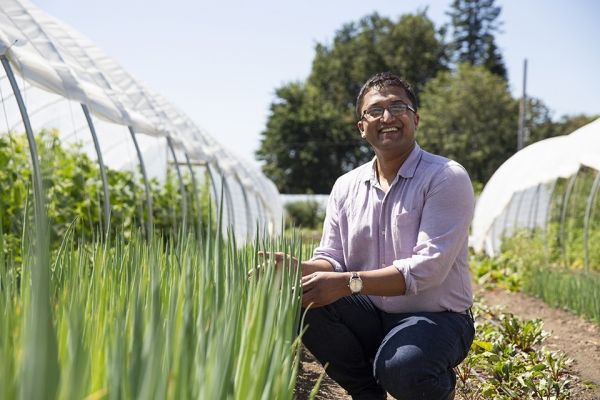When Saeed Rahman set out to understand how businesses can advance sustainability efforts through better integration of ecological knowledge, he turned first to farmers. What he found was that most agricultural organizations were using a different sustainability lexicon than businesses in other industries.
Rahman, who recently defended his PhD at the University of Victoria’s Sardul S. Gill Graduate School of Business, engaged farmers on the topic of sustainability and clearly remembers one response. “This person said: ‘I don’t believe in sustainability. Sustainability is the idea that we can keep taking at the rate that we’ve always been taking. Sustainability is over. Now, the new economy is about the regeneration economy,’” he recalls.
Rahman had assumed ecological knowledge— a cumulative body of knowledge about an organization’s interrelationships with nature— might be a new concept for business. He was surprised and fascinated to find many agricultural businesses had already reframed their ideas away from sustainability and towards regeneration as a necessary shift to protect the ecosystem and the longevity of their businesses. It became a key theme among his findings.
After dozens of interviews with BC-based organic and fair-trade organizations, Rahman identified common trends among success cases of these sustainably-minded businesses. His 10-dimension process model—a recipe of what worked for some businesses as they sought to become more sustainable—maps how ecological knowledge can be accessed, co-created and integrated into existing business strategy. The model starts with a business being willing to look beyond traditional organizational boundaries and see itself as embedded in the whole ecosystem. Timing is also a factor.
Continue reading at University of Victoria.
Image via University of Victoria.


